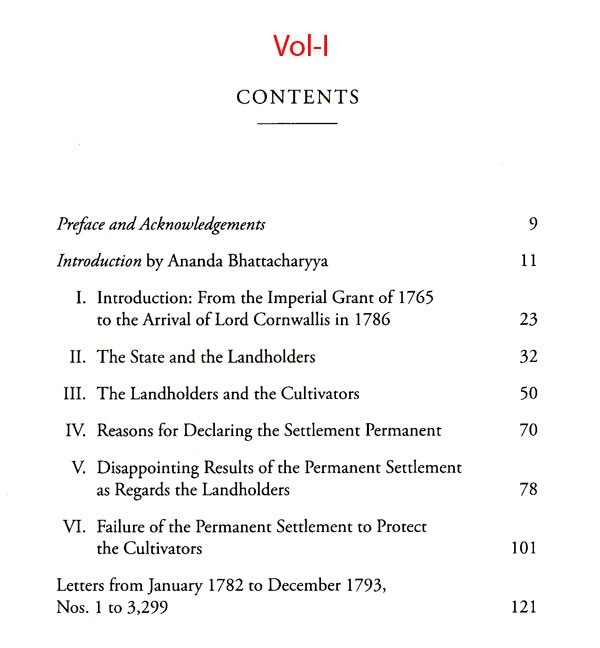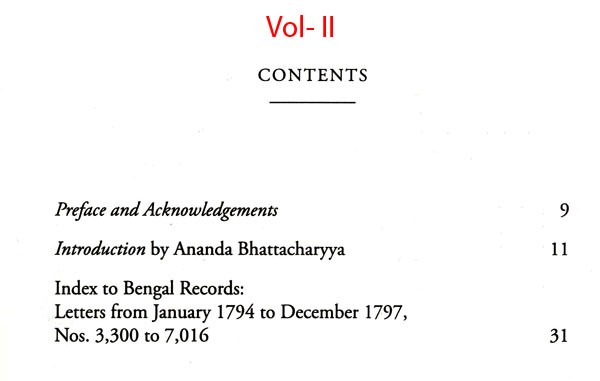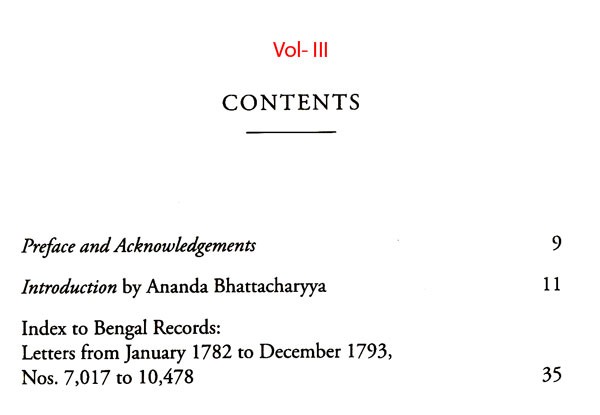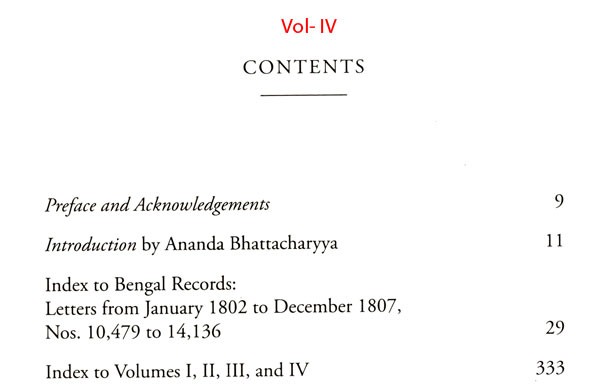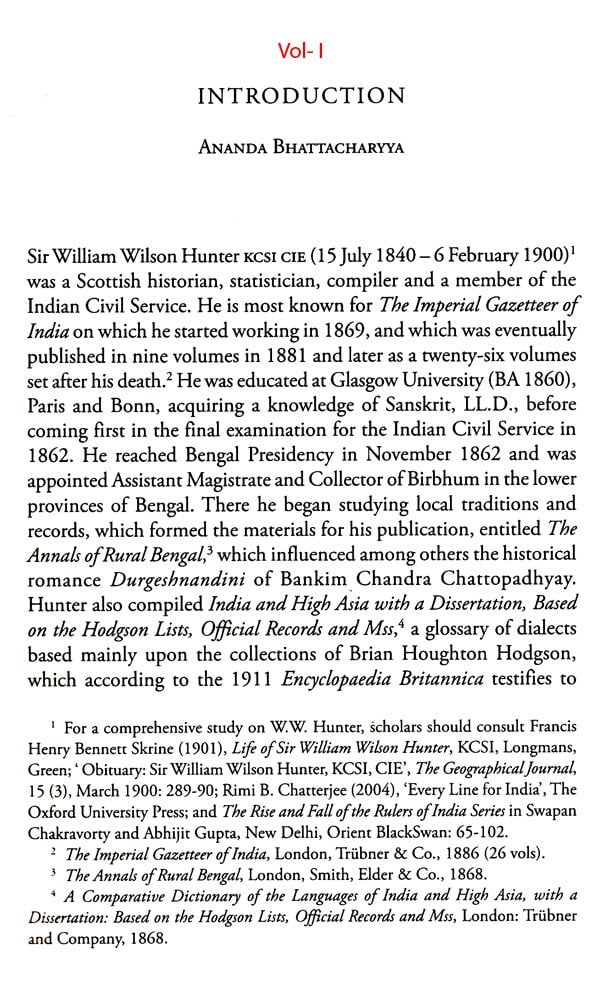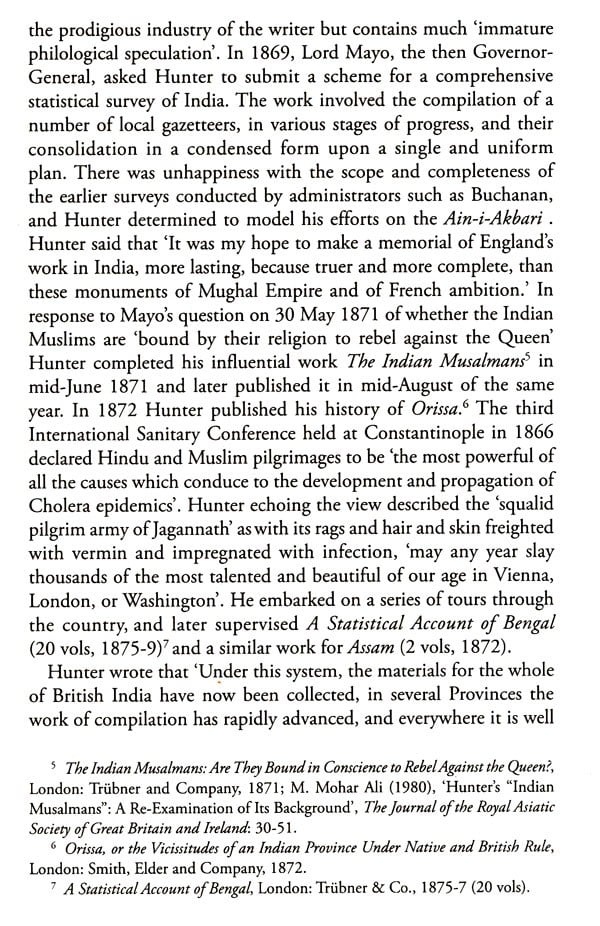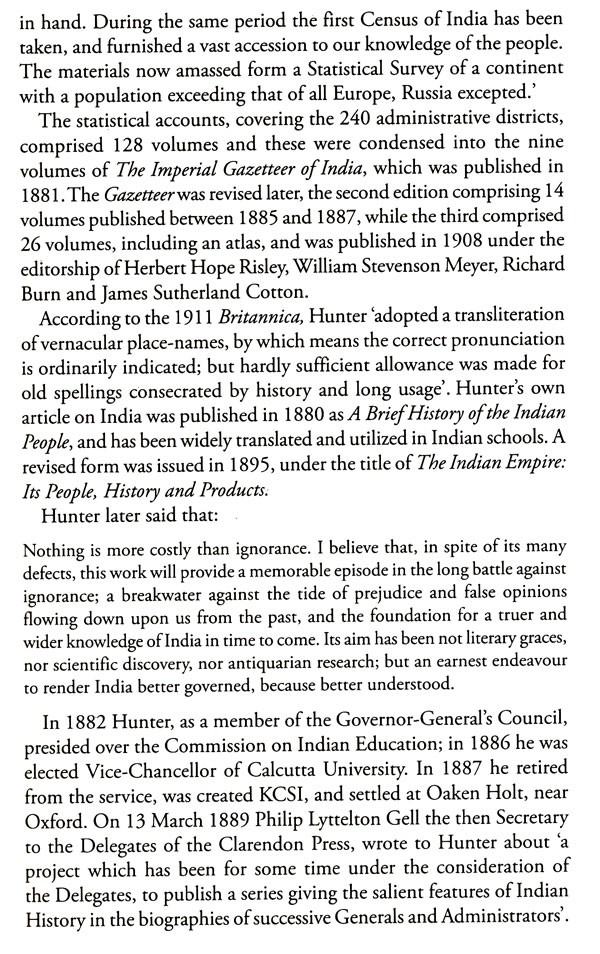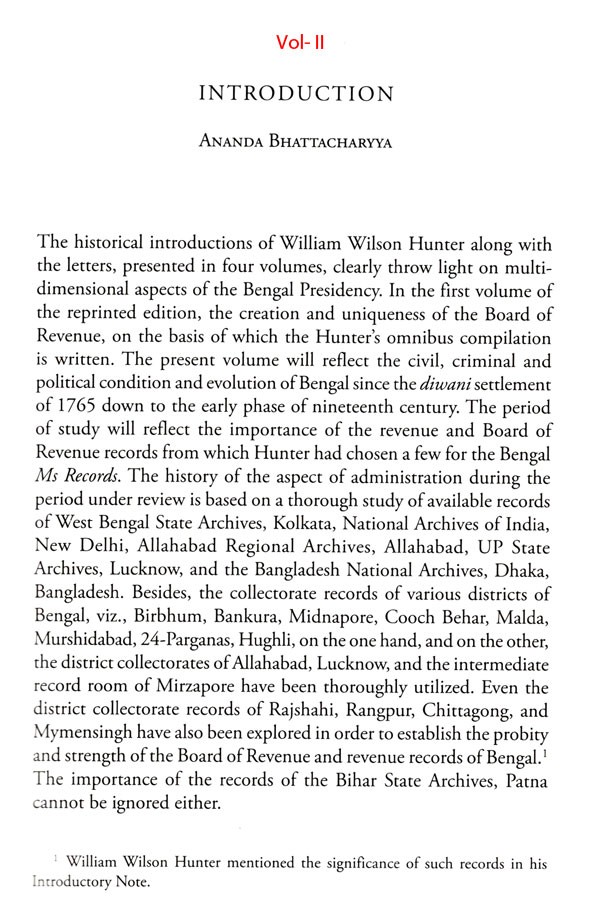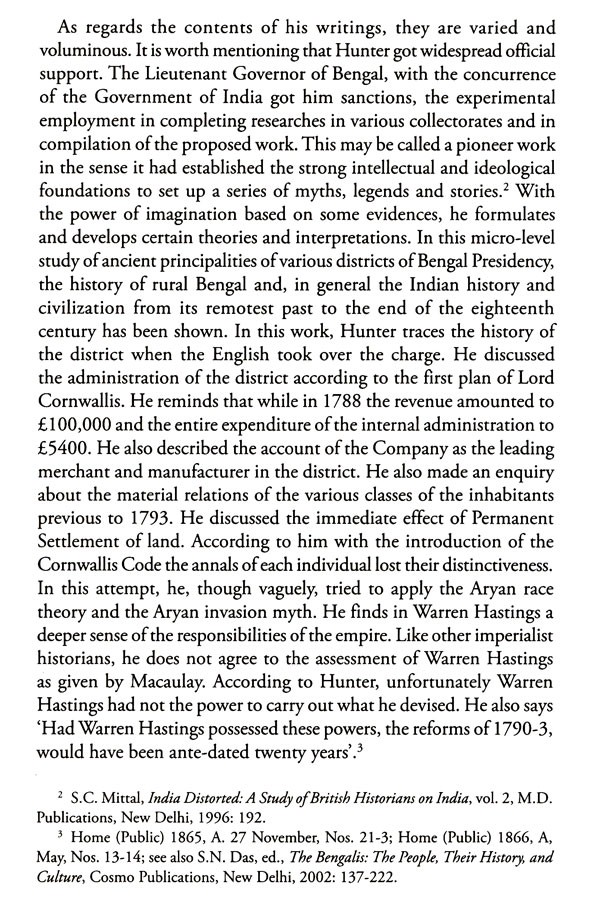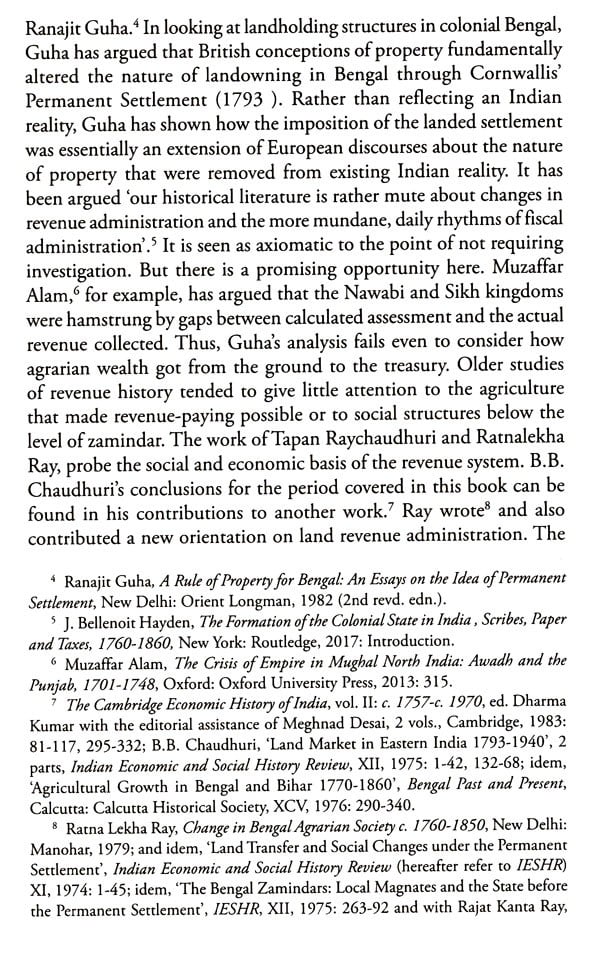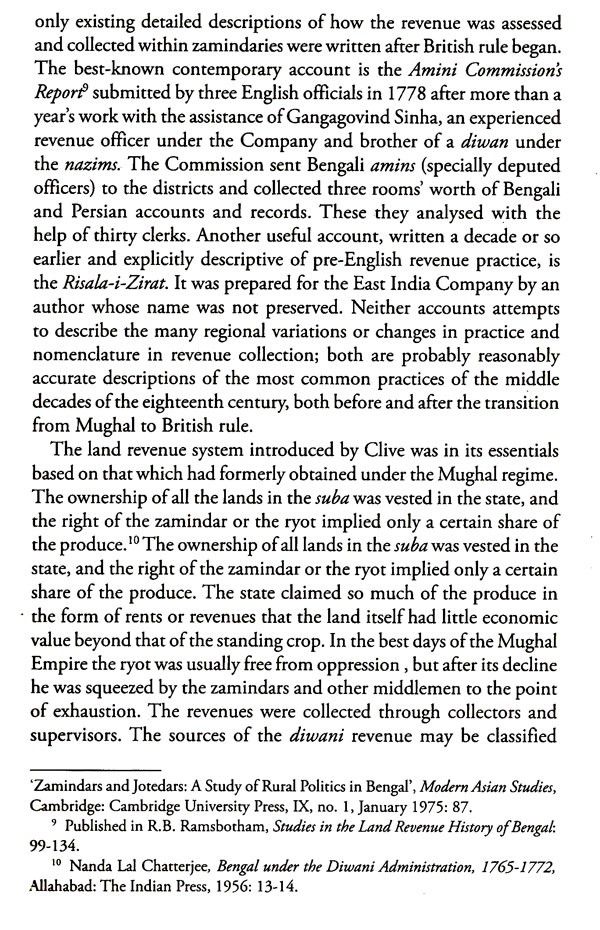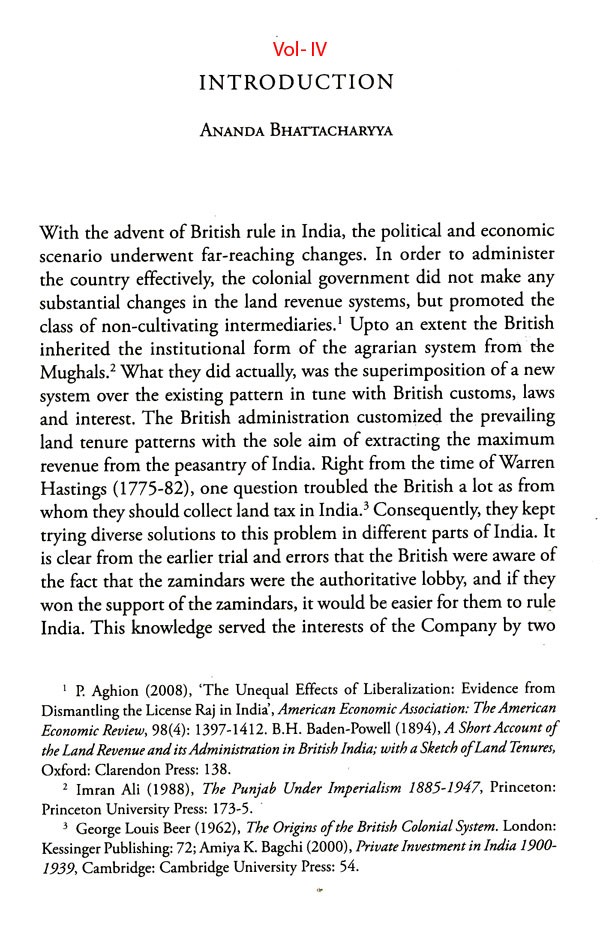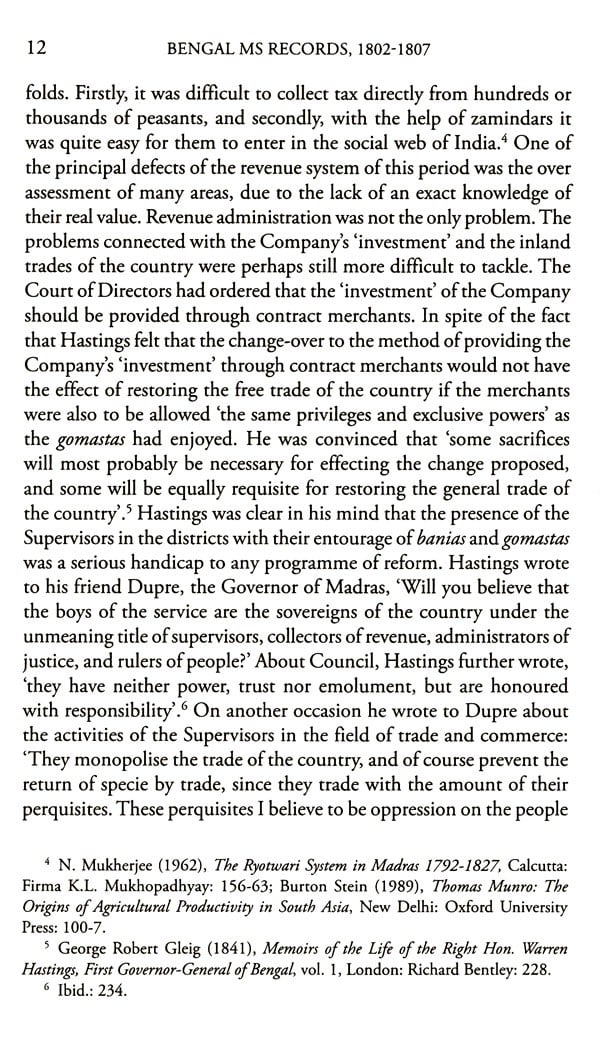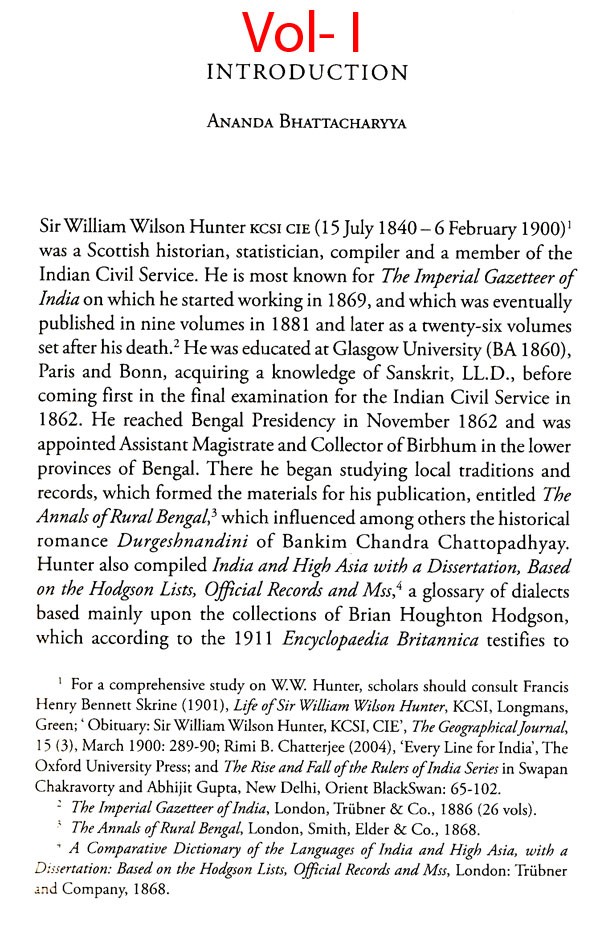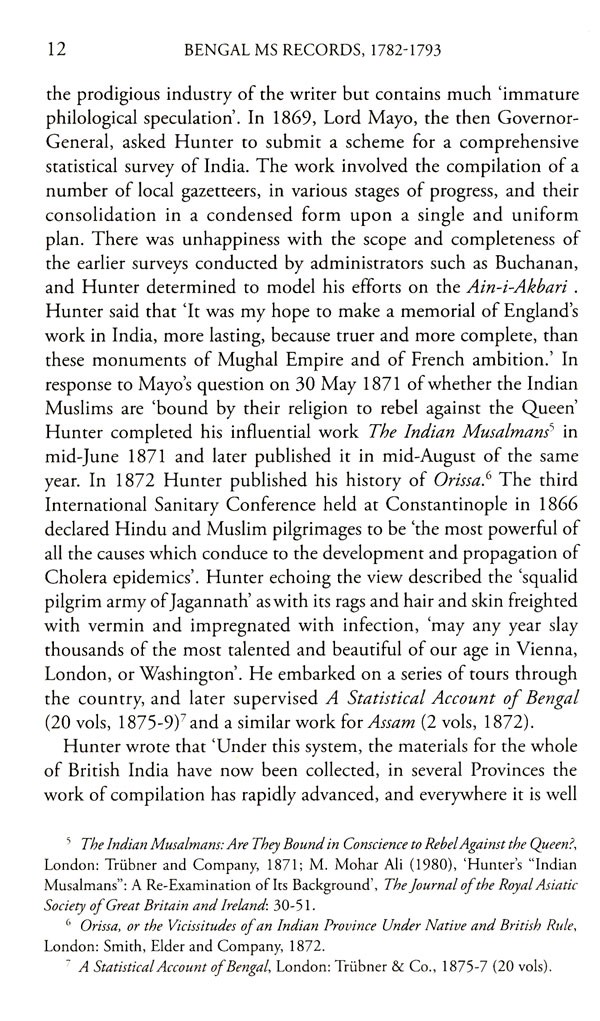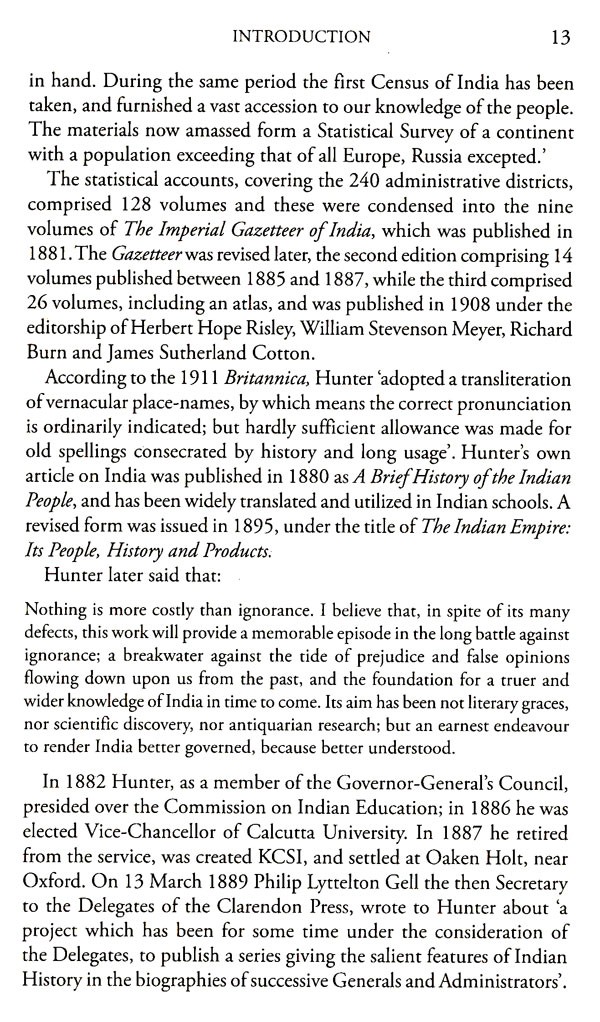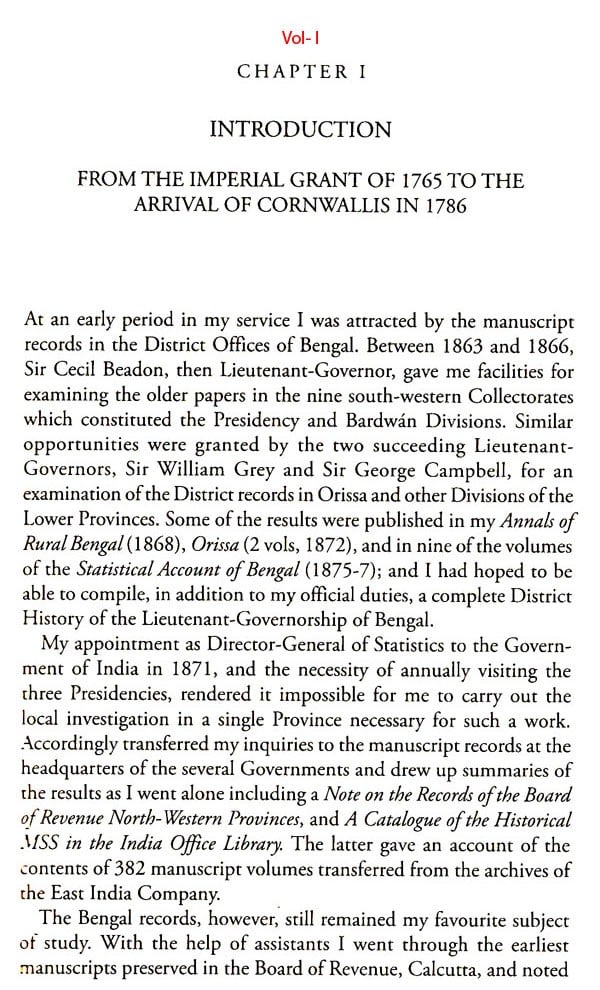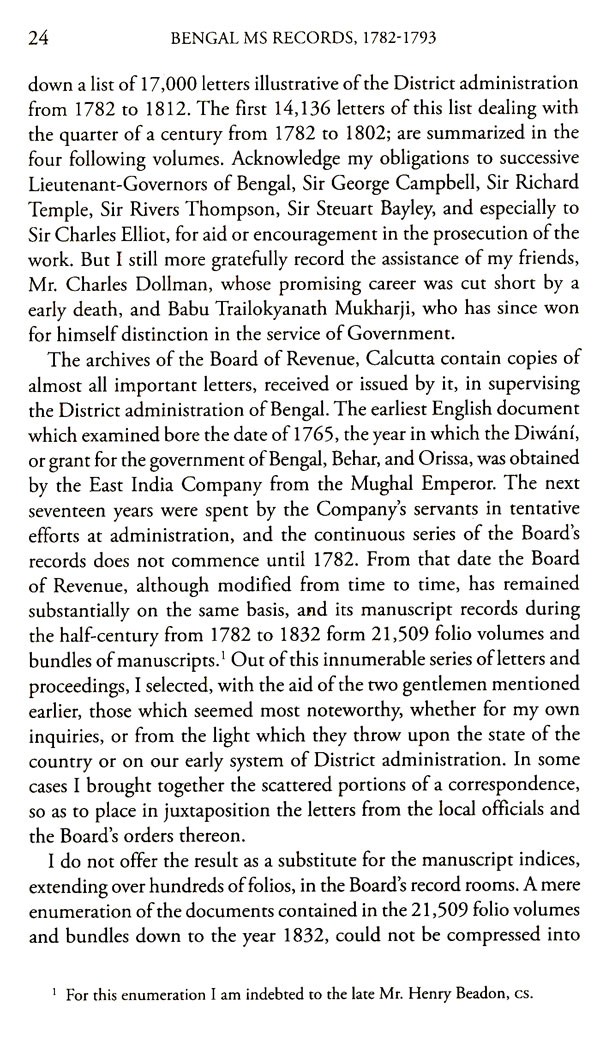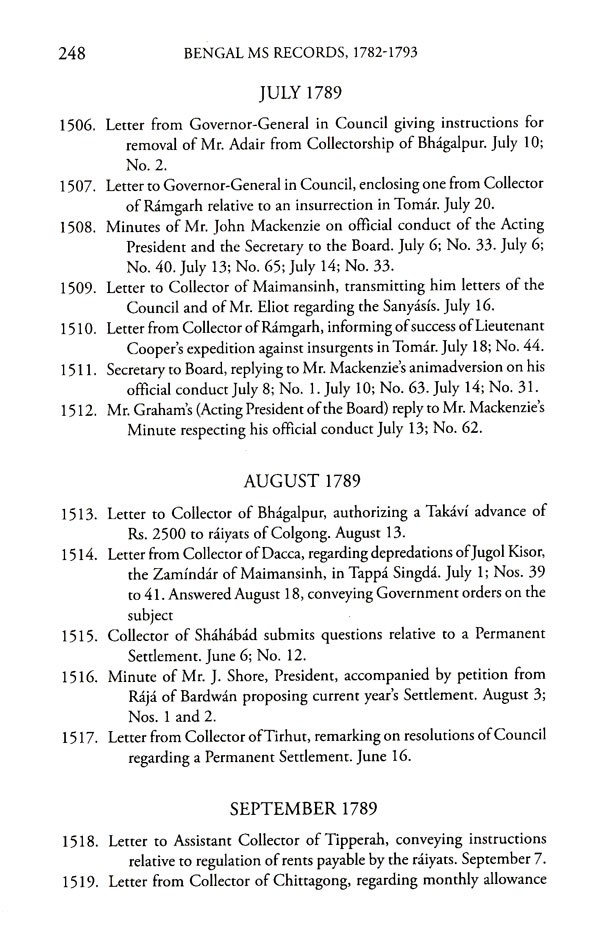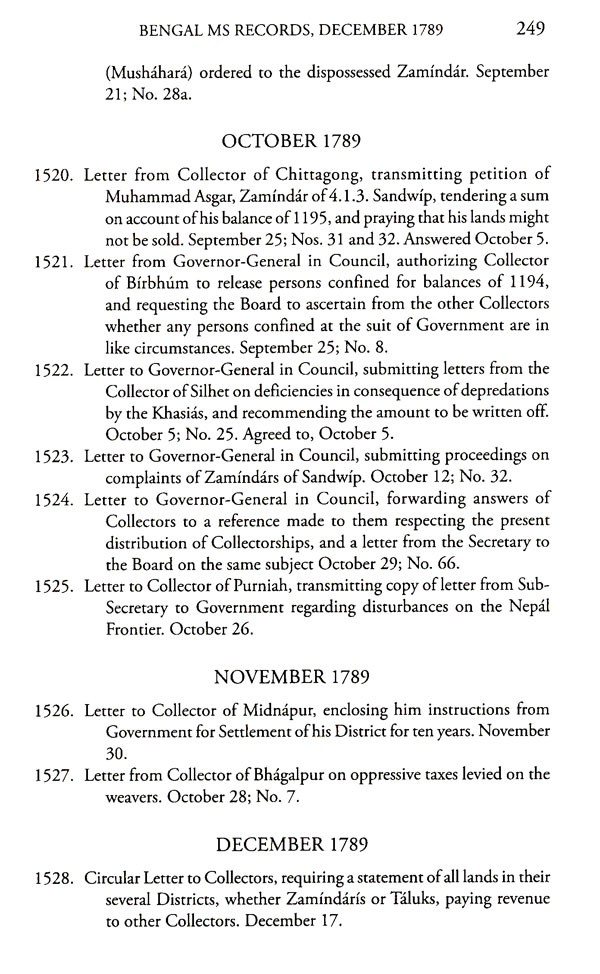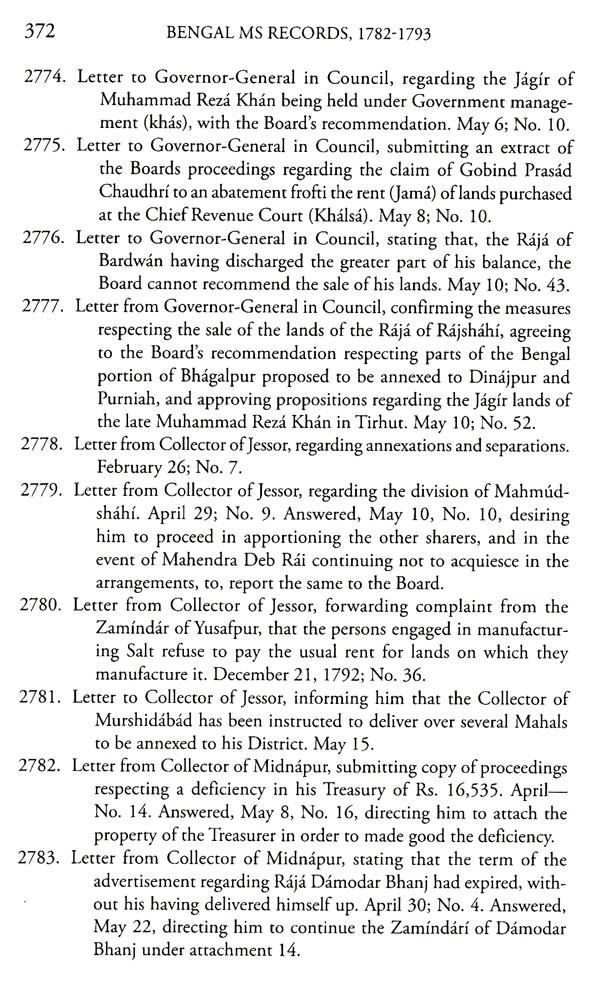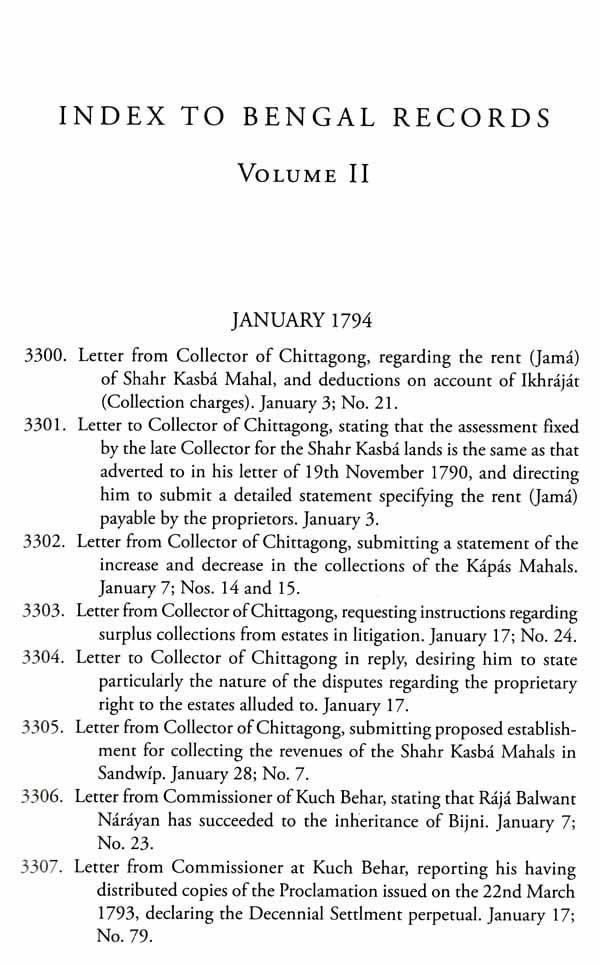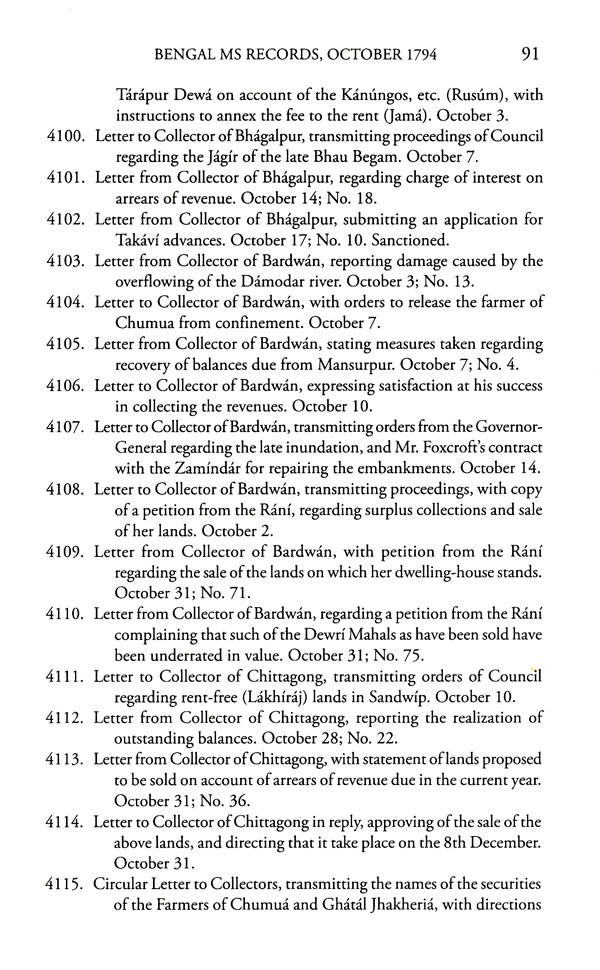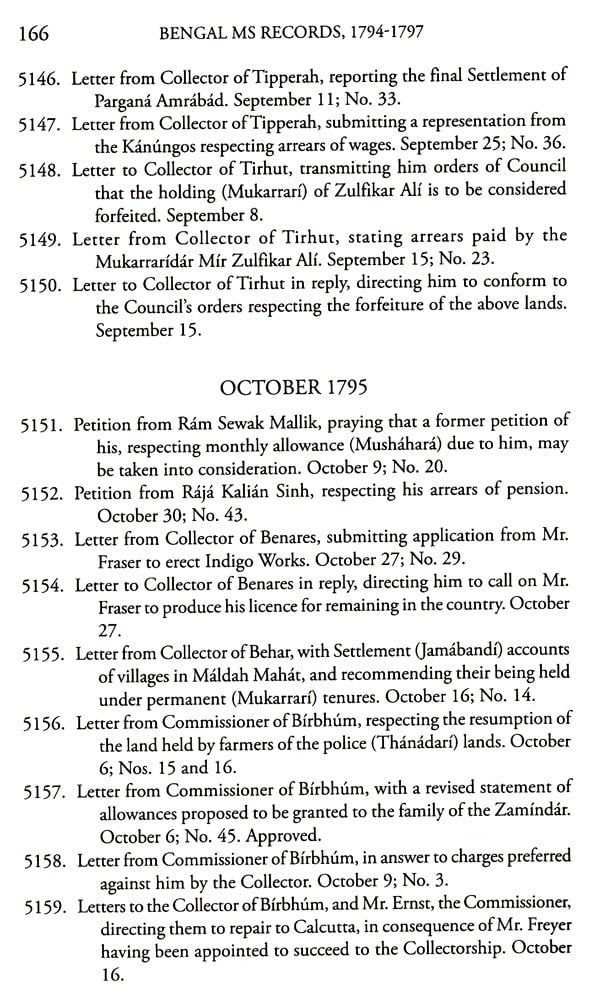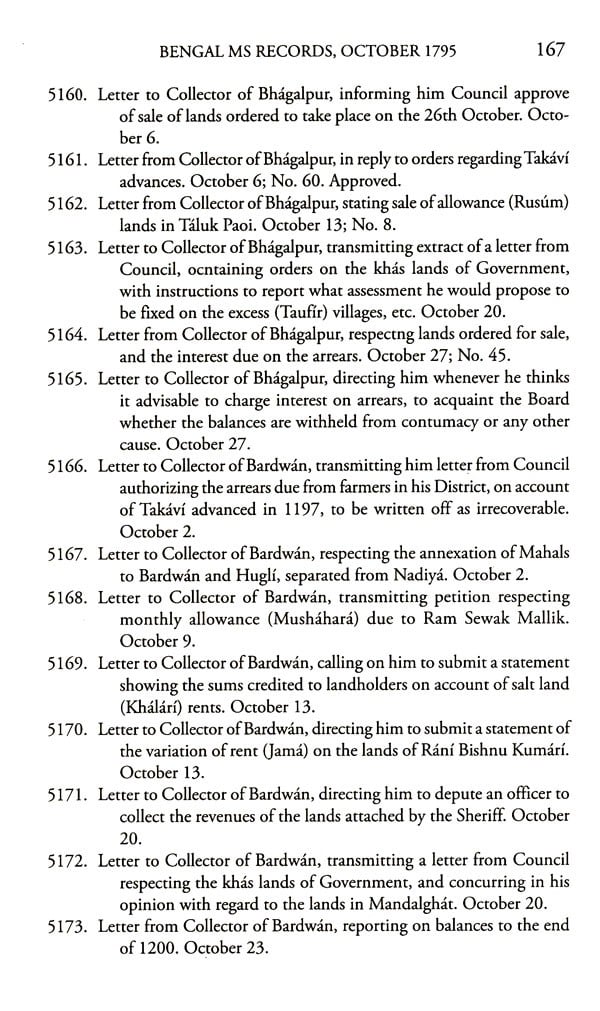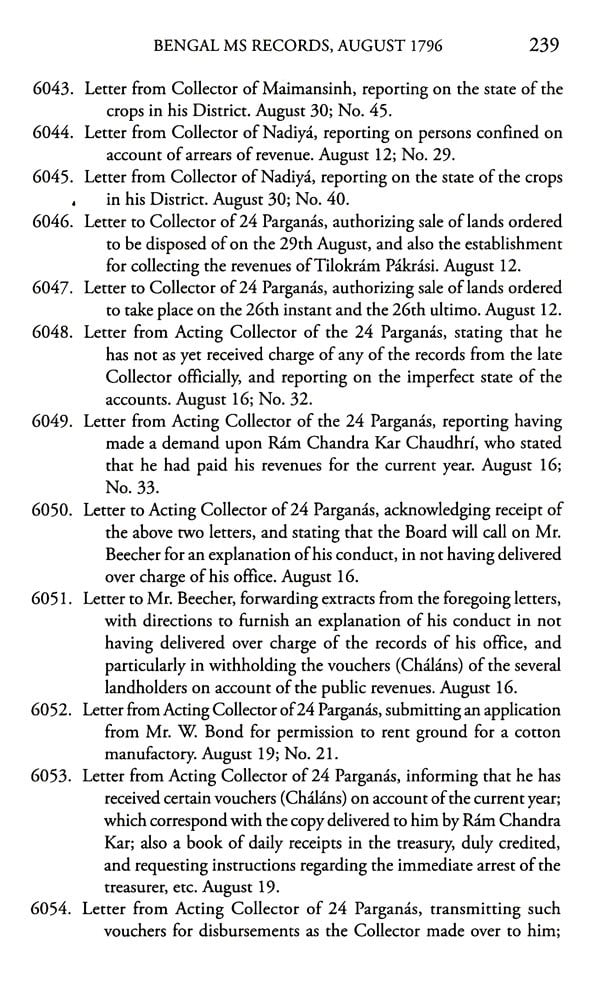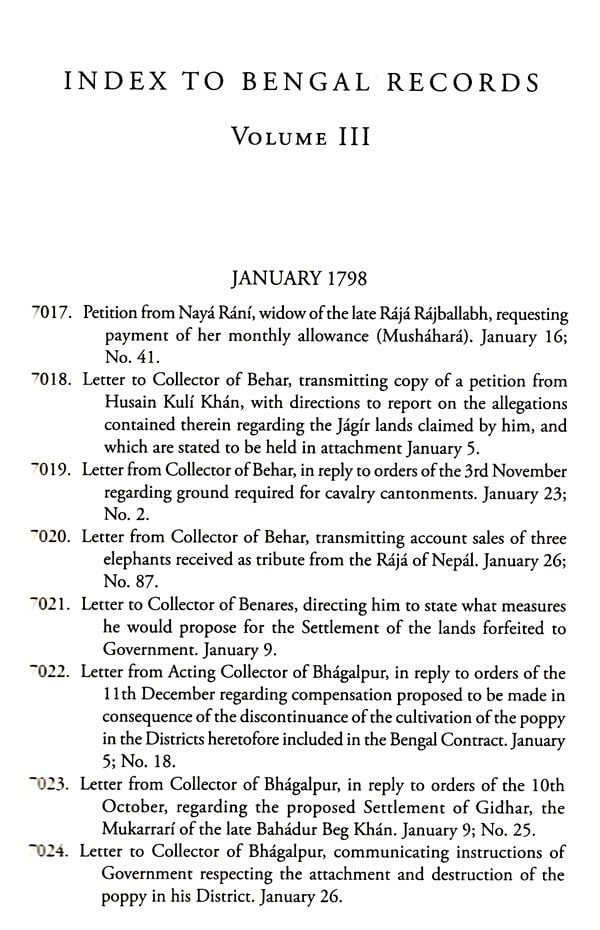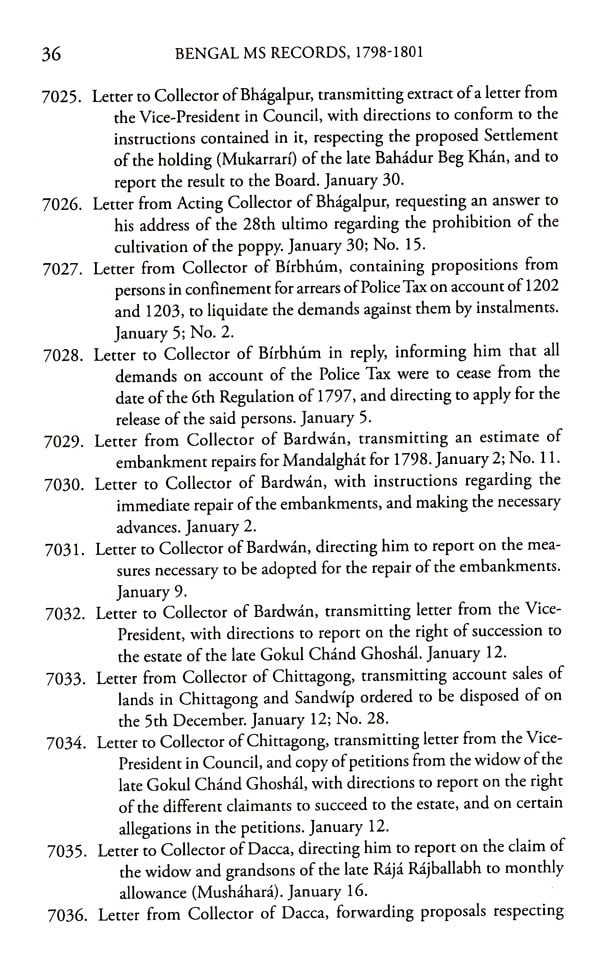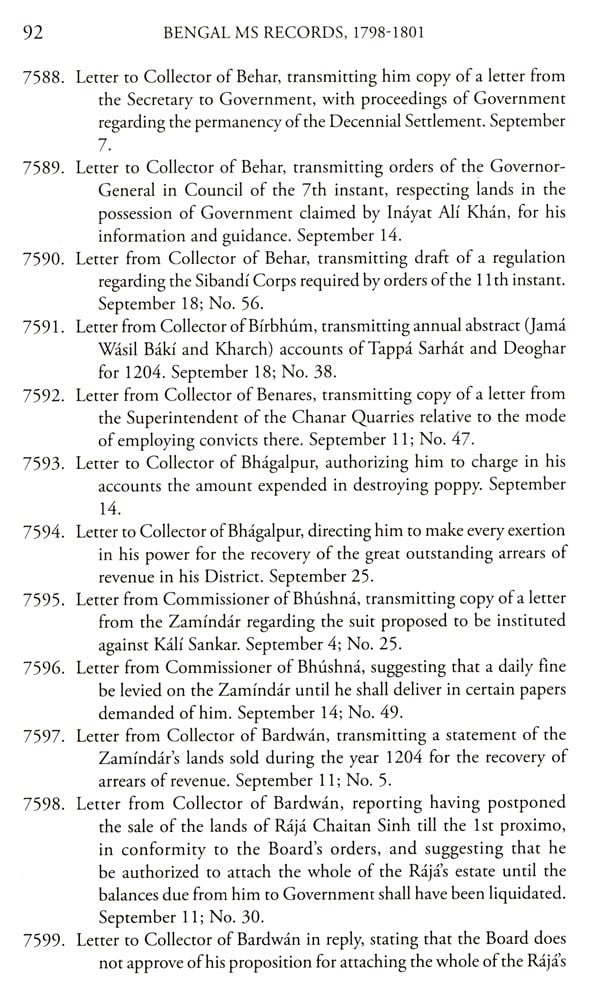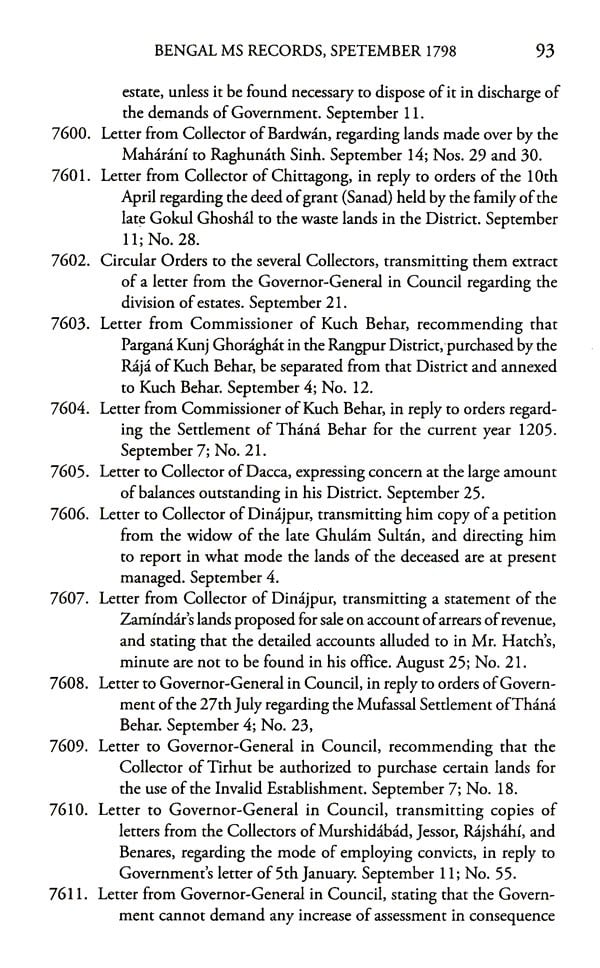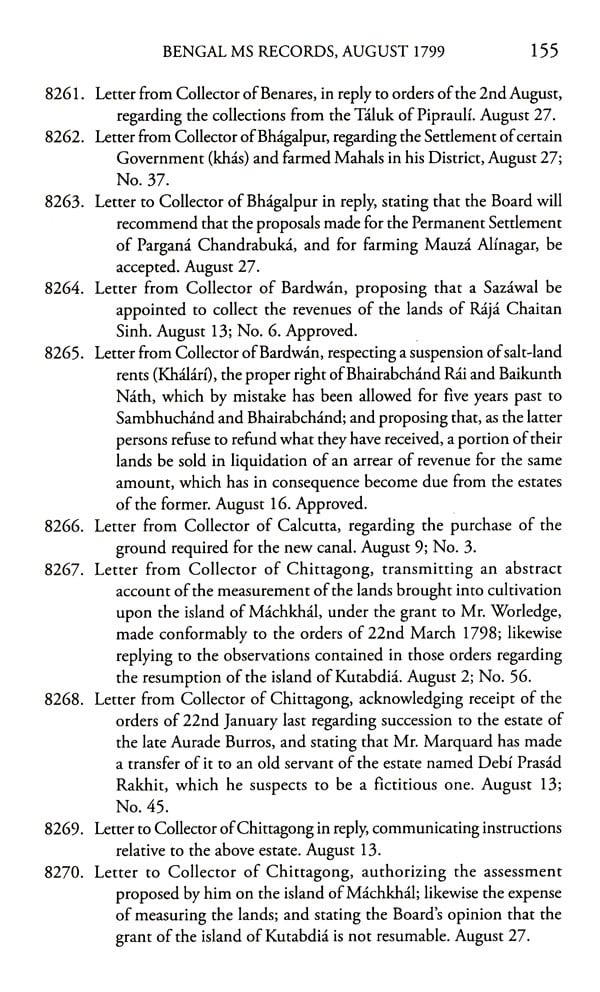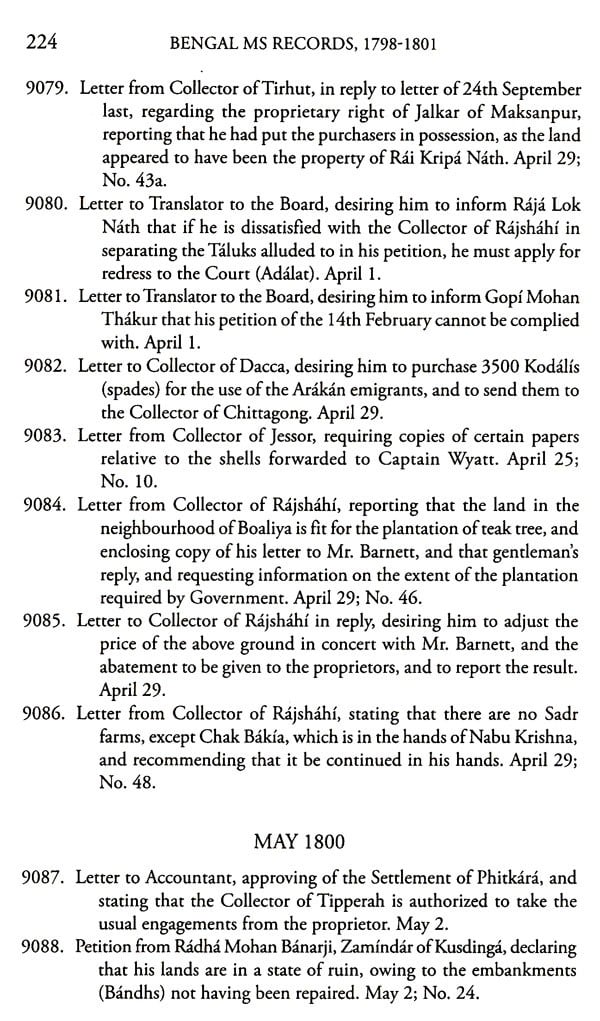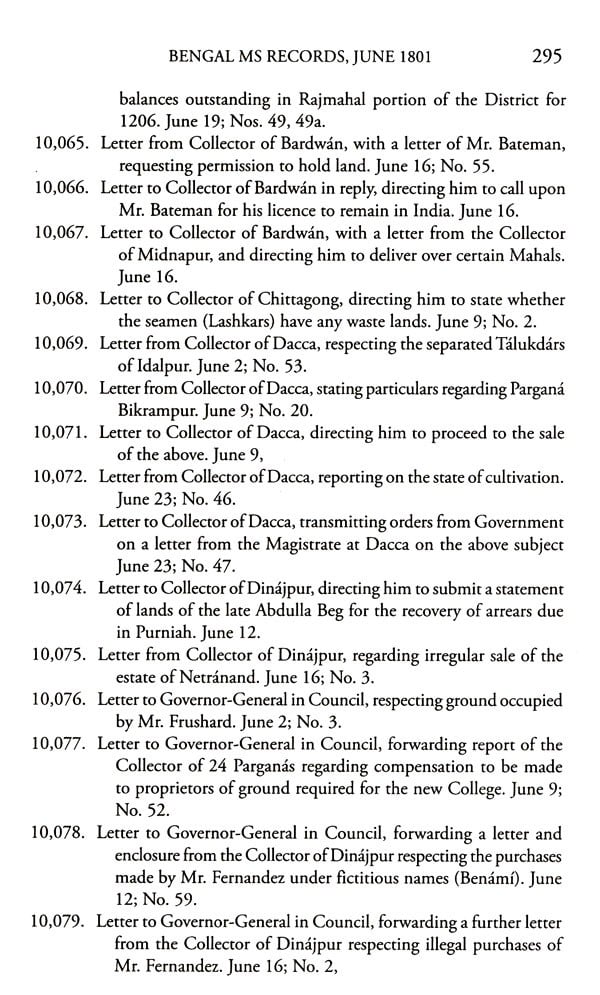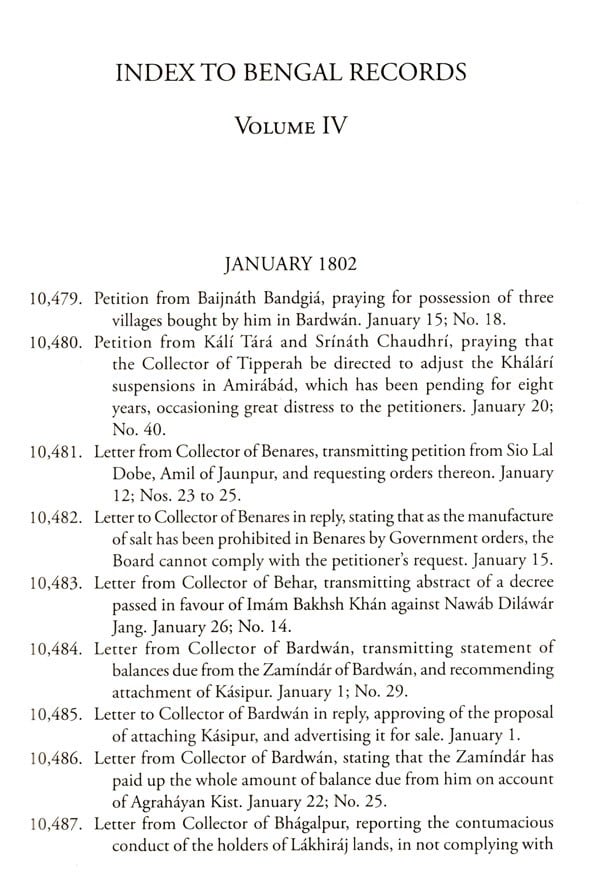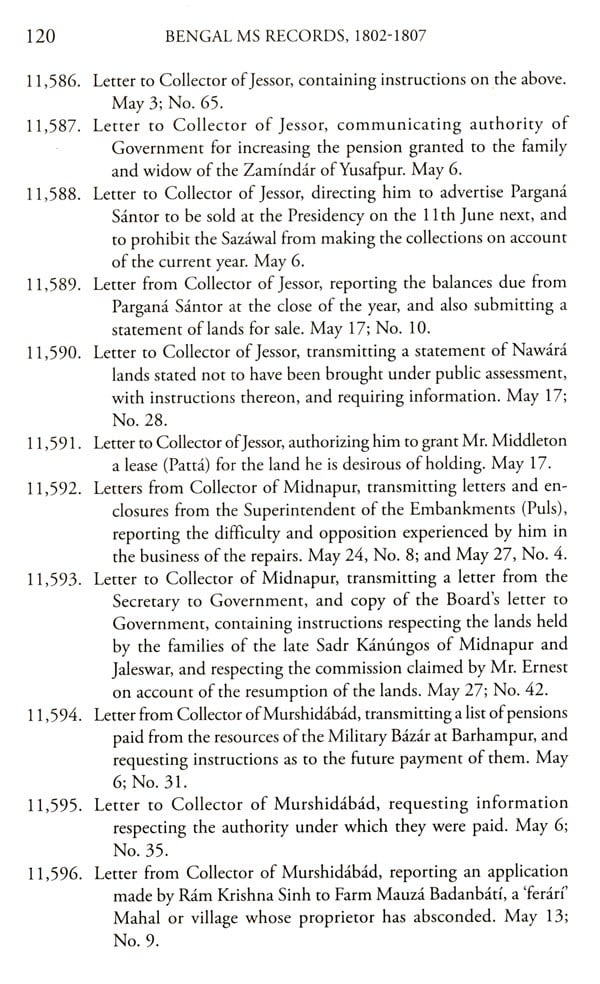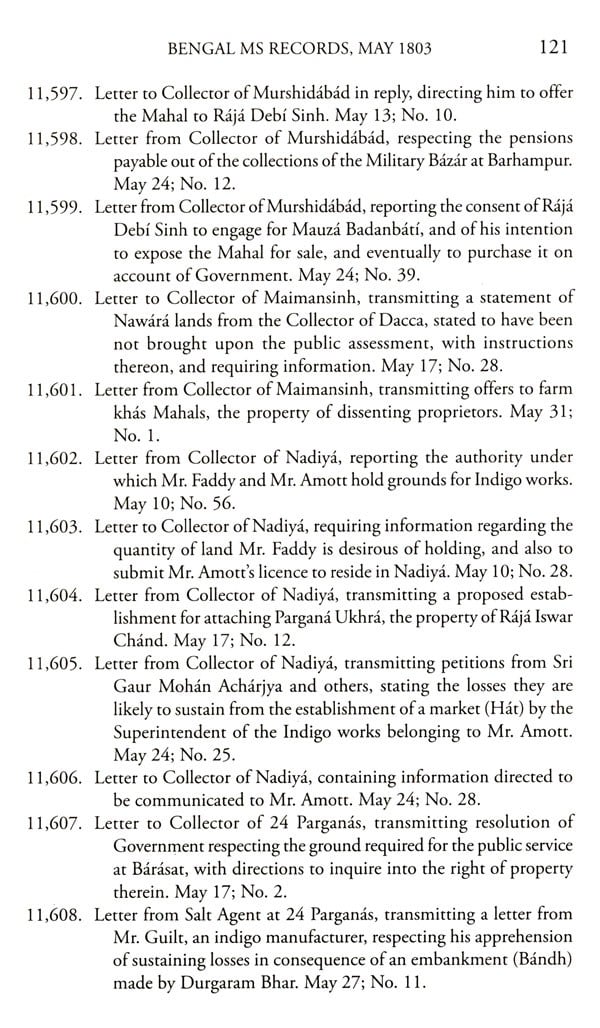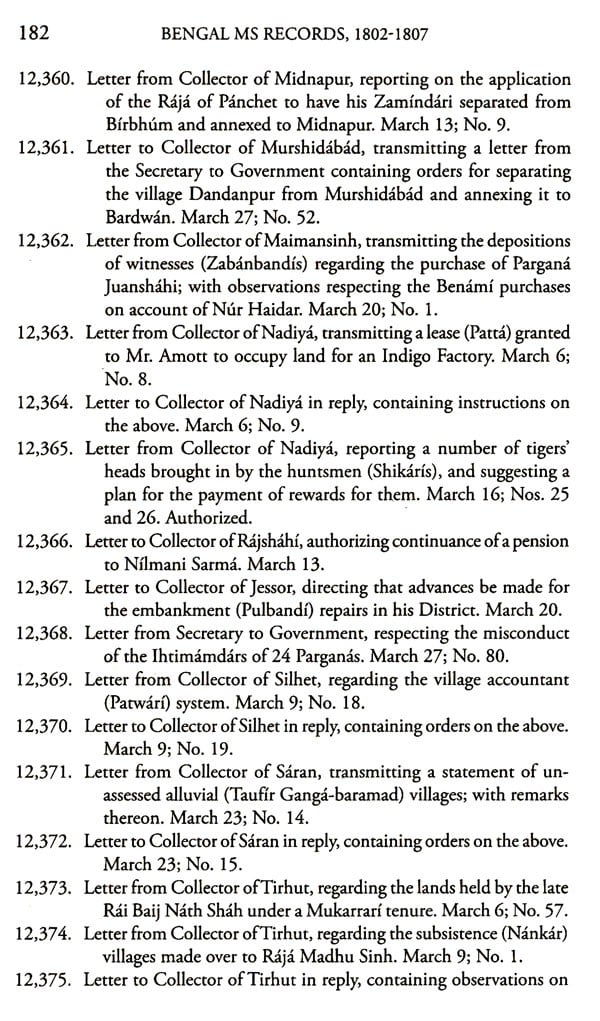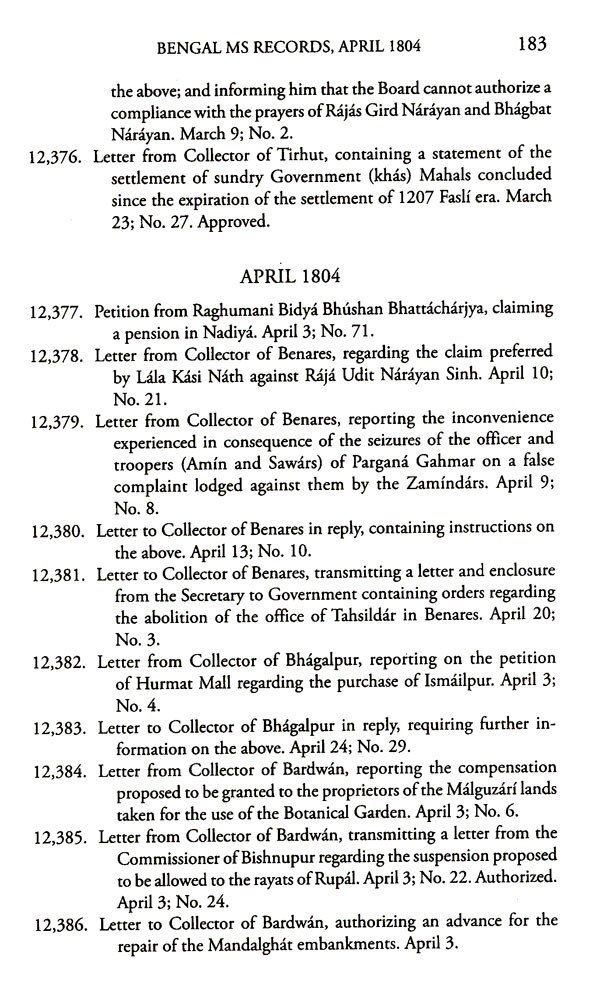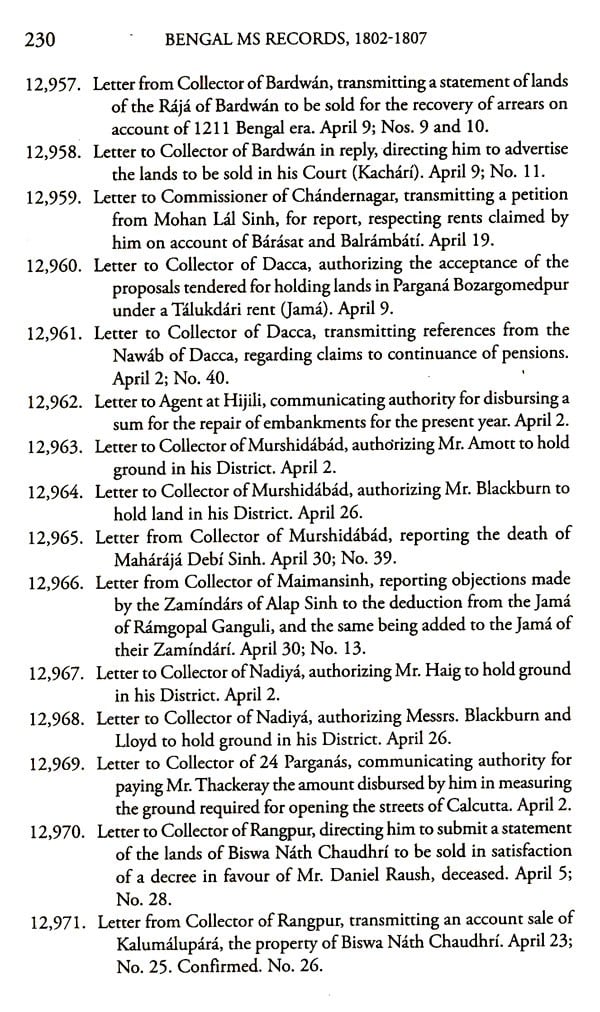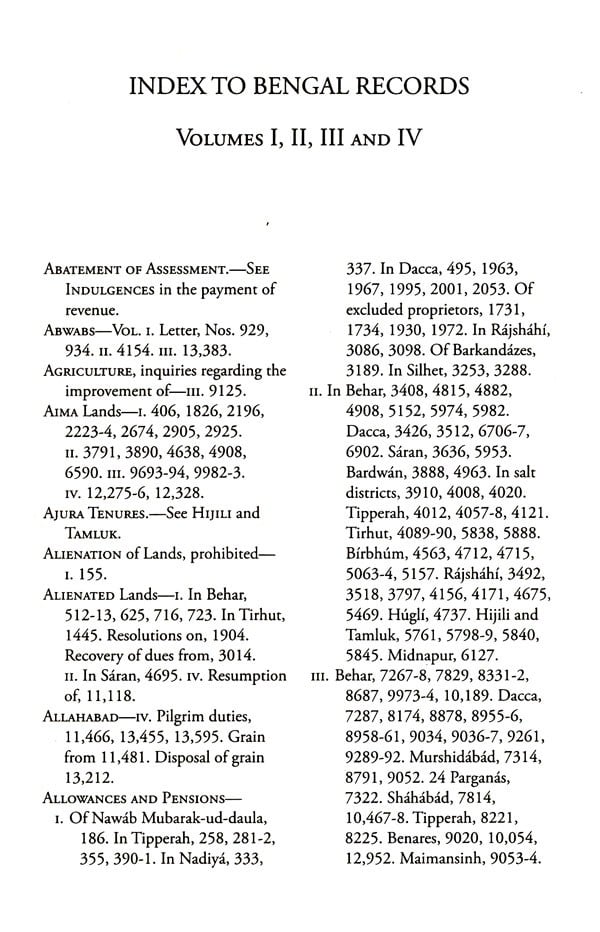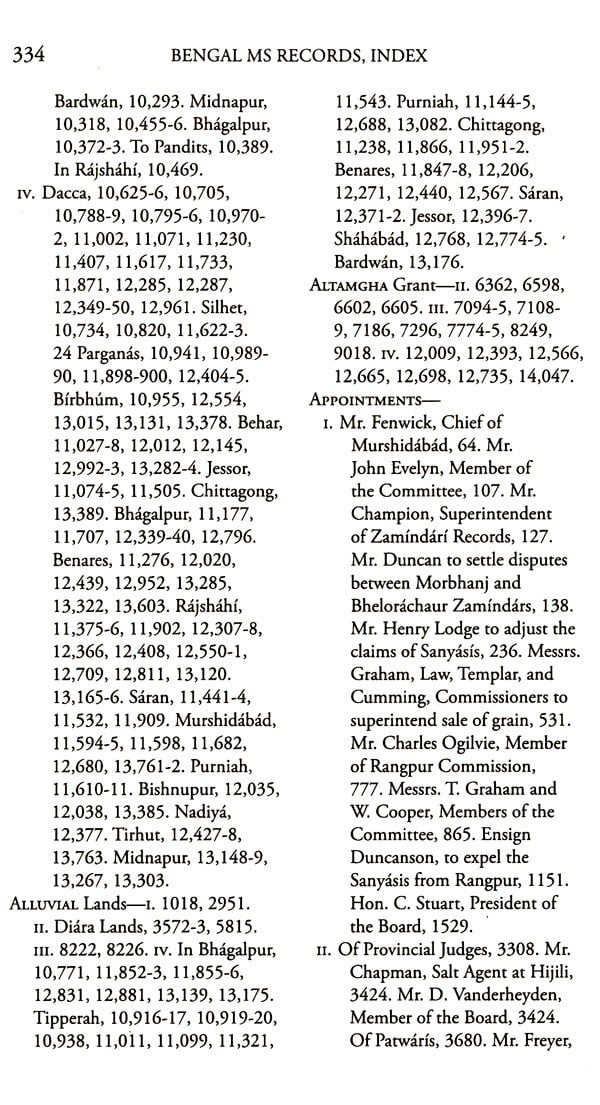
Bengal Ms Records (A Selected List of 14, 136 Letters in the Board of Revenue, Calcutta, 1782- 1807, With an Historical Dissertation and Analytical Index in Set of 4 Volumes)
Book Specification
| Item Code: | AZB527 |
| Author: | William Wilson Hunter |
| Publisher: | Manohar Publishers and Distributors |
| Language: | English |
| Edition: | 2018 |
| ISBN: | 9788193779408 |
| Pages: | 1618 |
| Cover: | HARDCOVER |
| Other Details | 8.8 x 5.8 inches |
| Weight | 2.74 kg |
Book Description
W.W. Hunter's Bengal Ms Records 1782-1807 in four volumes, is based on the Collectorate records and the records of the Board of Revenue which were widely scattered. Hunter made an extensive survey of these records which are now available in a complete form in the record room of the Directorate of State Archives, West Bengal. The records relate to the judicial, civil, military and land revenue administration of the East India Company. The introductory note of Hunter as found in the Bengal Ms Records and the bulk of letters, throw light on the revenue work that progressed territorially with the expansion of the Presidency.
The importance of the Board of Revenue records was given considerable significance as these records were the raw data for reconstructing these volumes. Hunter's omnibus compilation had thrown light on various districts of Bengal Presidency, viz.,Midnapore, Bissenpore (Bishnupur), Cuttuck, Rangpur, Dinajpur, Rajshahi, Mymensingh, Chittagong, Purneah, Bhagalpur, Shahabad and Benares and dealt with such matters as rent suits, waste lands, lakhiraj lands, Government estates and their settlements, customs, excise, salt, opium, indigo, police, post office, and public works including sanitation, embankments, stamps and survey.
The consolidated index prepared by Hunter shows the exhaustive nature of his research and would prove to be a lodestone for scholars of colonialism in South Asia.
Sir William Wilson Hunter (15 July 1840-6 February 1900), a Scotsman, was a historian, statistician, compiler, and a member of the Indian Civil Service. He is best known for The Imperial Gazetteer of India; The Annals of Rural Bengal; The Indian Musalmans; A Statistical Account of Bengal; Life of the Earl of Mayo and Others.
Ananda Bhattacharyya is Assistant Director of the West Bengal State Archives. His many publications include A History of the Dasnami Naga Sannyasis (2018); Adivasi Resistance in Early Colonial India (2017); Remembering Komagata Maru: Official Reports and Contemporary Accounts (2016); Notes on the Races, Castes and Trades of Eastern Bengal (2016) and Sannyasi and Fakir Rebellion in Bengal: Jamini Mohan Ghosh Revisited (2014).
Sir William Wilson Hunter was a Scottish historian, statistician, compiler and a member of the Indian Civil Service. He reached Bengal Presidency in November 1862 and was appointed Assistant Magistrate and Collector of Birbhum in the lower provinces of Bengal. There he began studying local traditions and records, which formed the source material for his multiple publications. In preparing this monumental work, Hunter had to rely on collectorate records and the records of Board of Revenue which were widely scattered in various record rooms of Bengal Presidency. Hunter made an extensive survey of those records which are now available in a complete set up in the record room of the Directorate of State Archives, West Bengal. The early records of the East India Company either preserved in the Archives or in the collectorates, relate to the land revenue administration on the one hand and on the other reflects on the judicial, civil and military administration of the Company. The introductory note of Hunter in the present publication of Bengal Ms Records and the bulk of letters, available in four volumes, throw light on the revenue work that developed territorially with the expansion of the Presidency.
In order to bring out the reprint edition of Bengal Ms Records I am partially indebted to Smt. Barnali Dutta, Chief Librarian, West Bengal Secretariat Library, Writers' Buildings, Government of West Bengal, and the staff and the members of the National Library, Calcutta. Special acknowledgement is due to Professor Rajat Kanta Ray for providing me with new insights to studying the agrarian history of Bengal. My friend, Professor Ujjayan Bhattacharyya not only encouraged me but also provided valuable suggestions in preparing my introductory note for which, I am really beholden to him. Finally, I am duly indebted to Shri Ramesh Jain of Manohar Publishers & Distributors, who has kindly agreed to bring out the reprint edition.
**Contents and Sample Pages**
